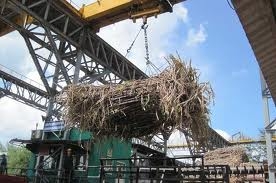ទស្សនៈព្រឹត្តិការណ៍សេដ្ឋកិច្ចខ្មែរ
ដោយ គី សុខលីម
ពីមួយឆ្នាំទៅមួយឆ្នាំ ប្រទេសកម្ពុជាបានផលិតធនធានមនុស្សកាន់តែច្រើនឡើងៗ។ ជាក់ស្តែង សាលារៀនដែលជាថ្នាលបណ្តុះបណ្តាលធនធានមនុស្សបានបើកទ្វារកាន់តែ ច្រើនឡើងៗ ទាំងនៅក្នុងទីក្រុងភ្នំពេញ ទាំងនៅតាមបណ្តាខេត្តនានានៅក្នុងប្រទេស។
ក្នុងមួយឆ្នាំៗនិសិត្សច្រើនពាន់ម៉ឺននាក់បានចេញពីសាកល វិទ្យាល័យ។ ជាការពិត ជារៀងរាល់ឆ្នាំ មាននិសិ្សតច្រើនពាន់នាក់បានបញ្ចប់ការសិក្សាមែន ប៉ុន្តែសំណួរដែលកំពុងចោទឡើង គឺទាក់ទងទៅនឹងគុណភាពអប់រំ នៅក្នុងប្រទេសក្រីក្រមួយនេះ។ ប្រសិនបើគេនិយាយក្នុងក្របខណ្ឌក្នុងប្រទេស និងផ្អែកលើហេតុផលក្រោយរបបប៉ុលពត ជាការមិនអាចប្រកែកបានគឺថា គុណភាពអប់រំរបស់កម្ពុជាមានការរីកចម្រើនទៅមុខគួរសមមែន ប៉ុន្តែប្រសិនបើគេធ្វើការប្រៀបធៀបគុណភាពអប់រំរបស់កម្ពុជាជាមួយ ប្រទេសនៅក្នុងតំបន់ ឬប្រទេសអភិវឌ្ឍន៍ធំៗវិញ វិស័យអប់រំកម្ពុជាស្ថិតនៅឆ្ងាយដាច់ពីគេសឹងហៅមិនឮ។
តើមូលហេតុអ្វីបានជាវិស័យអប់រំកម្ពុជានៅទន់ខ្សោយ?
មូលហេតុមានច្រើន ប៉ុន្តែ បញ្ហាធំៗកត់សម្គាល់មានដូចជា៖ ទី១ គឺដោយសារប្រាក់ខែគ្រូបង្រៀននៅតាមសាលារដ្ឋមានចំនួនតិចតួច។ ប្រាក់ខែមិនអាចរស់បានធ្វើអោយគ្រូបង្រៀនគ្មានចំណង់នឹងបង្រៀន ឡើយ។
ទី២៖គឺដោយសារគ្រូបង្រៀនមួយចំនួនបាត់បង់ក្រមសីលធម៌ មានន័យថា ប្រាក់ខែរដ្ឋទាបមែន ប៉ុន្តែពួកគេអាចរកក្រៅបានគួរសម។ រកកម្រៃក្រៅផ្លូវការបានច្រើនហើយ ប៉ុន្តែពួកគេនៅតែគ្មានឆន្ទៈនឹងបង្រៀនដដែល។ នេះគឺដោយសារការបាត់បង់សតិសម្បជញ្ញៈក្នុងនាមជាអ្នកបណ្តុះបញ្ញា ញាណ។
បញ្ហាទី៣ដែលទាញទម្លាក់គុណភាពអប់រំដែរនោះ គឺគុណភាពគ្រូបង្រៀនតែម្តង។ គ្រូបង្រៀននៅតាមសាលារដ្ឋមួយចំនួនមិនមែនចេញមកពីសិស្សឆ្នើម ប្រចាំសាលាទេ។ ដោយសារប្រាក់ខែគ្រូបង្រៀនទាប សិស្សឆ្នើមភាគច្រើនមិនចង់ក្លាយខ្លួនទៅជាសាស្រ្តចារ្យឡើយ។
មូលហេតុទី៤ដែលរុញច្រានអោយគុណភាពអបរំមានកម្រិតទាបដែរនោះ គឺដោយសារសាកលវិទ្យាល័យមួយចំនួនគិតពីរឿងចំណេញប្រាក់កាសច្រើនជាង គិតពីគុណភាពសិក្សា។ សាកលវិទ្យាល័យខ្លះមិនហ៊ានរឹតបន្តឹងវិន័យខ្លាំងទេ ពីព្រោះពួកគេខ្លាចនិសិ្សតមិនចុះឈ្មោះរៀននៅទីនោះ។ ការគិតរបៀបនេះវានឹងរុញច្រានគុណភាពអប់រំខ្មែរអោយធ្លាក់ទៅរក មហន្តរាយថែមទៀត។
មូលហេតុចុងក្រោយដែលគ្រោះថ្នាក់ខ្លាំងដែរនោះ គឺការសូកប៉ាន់ ដើម្បីចៀសវាងការប្រឡងធ្លាក់ពីកម្រិតមួយទៅកម្រិតមួយ។
អ្នកតាមដានសភាពការណ៍សង្គមសេដ្ឋកិច្ចនៅក្នុងប្រទេសកម្ពុជាបាន អត្ថាធិប្បាយថា រដ្ឋាភិបាលគួរពិចារណាបន្ថែមទៀតពីរឿងគុណភាពអប់រំនេះ។ គុណភាពមនុស្សគឺជារឿងស្លាប់រស់របស់គ្រួសារ សហគមន៍ និងប្រទេសជាតិ។
កាលពីសម័យដើម កុលសម្ព័ន្ធនីមួយៗវាយប្រហារគ្នាតាមរយៈកម្លាំងបាយ ដើម្បីកាន់កាប់អំណាចនៅក្នុងតំបន់ណាមួយ។ ប៉ុន្តែក្នុងសម័យសតវត្សរ៍ទី២១នេះ សហគមន៍នីមួយៗ ឬប្រទេសនីមួយៗលែងប្រយុទ្ធគ្នាតាមកម្លាំងបាយទៀតហើយ។ តែជាការប្រយុទ្ធគ្នាដោយប្រើប្រាស់បញ្ញាញាណ។ តាមរយៈបញ្ញាញាណនេះ ប្រទេសខ្លះ ដូចជា ប្រទេសជប៉ុនជាដើម ធ្លាប់ក្លាយជាមហាអំណាចសេដ្ឋកិច្ចទី២ បន្ទាប់ពីសហរដ្ឋអាមេរិកមុននឹងផ្តល់តំណែងនេះទៅអោយប្រទេសចិនវិញ។
ឯាកមកនិយាយពីប្រទេសកម្ពុជាវិញ ប្រសិនបើកម្ពុជាចង់ក្លាយទៅជាប្រទេសមហាអំណាច ឬចង់ក្លាយខ្លួនទៅជាប្រទេសមួយដែលតំបន់ ឬពិភពលលោកទទួលស្គាល់នោះ ការផលិតធនធានមនុស្សដែលមានគុណភាពខ្ពស់គឺជារឿងចាំបាច់បំផុត។ ជាពិសេស នៅក្នុងបរិបទដែលប្រទេសកម្ពុជាត្រូវប្រកួតប្រជែងក្នុងក្របខណ្ឌ សហគមន៍អាស៊ាន រួមជាមួយប្រទេសដទៃទៀត នៅឆ្នាំ២០១៥ខាងមុខនេះ។
សូមកុំភ្លេចថា គ្រួសារមួយ សហគមន៍មួយ ប្រទេសជាតិមួយ ដែលសម្បូរទៅដោយមនុស្សមានចំណេះដឹងប្រកបដោយគុណភាពខ្ពស់ គ្រួសារនោះ សហគមន៍នោះ ប្រទេសនោះពិតជាអភិវឌ្ឍលឿនជាងគ្រួសារ សហគមន៍ឬប្រទេសដែលមិនសូវមានអ្នកចេះដឹង៕
ដោយ គី សុខលីម
ពីមួយឆ្នាំទៅមួយឆ្នាំ ប្រទេសកម្ពុជាបានផលិតធនធានមនុស្សកាន់តែច្រើនឡើងៗ។ ជាក់ស្តែង សាលារៀនដែលជាថ្នាលបណ្តុះបណ្តាលធនធានមនុស្សបានបើកទ្វារកាន់តែ ច្រើនឡើងៗ ទាំងនៅក្នុងទីក្រុងភ្នំពេញ ទាំងនៅតាមបណ្តាខេត្តនានានៅក្នុងប្រទេស។
ក្នុងមួយឆ្នាំៗនិសិត្សច្រើនពាន់ម៉ឺននាក់បានចេញពីសាកល វិទ្យាល័យ។ ជាការពិត ជារៀងរាល់ឆ្នាំ មាននិសិ្សតច្រើនពាន់នាក់បានបញ្ចប់ការសិក្សាមែន ប៉ុន្តែសំណួរដែលកំពុងចោទឡើង គឺទាក់ទងទៅនឹងគុណភាពអប់រំ នៅក្នុងប្រទេសក្រីក្រមួយនេះ។ ប្រសិនបើគេនិយាយក្នុងក្របខណ្ឌក្នុងប្រទេស និងផ្អែកលើហេតុផលក្រោយរបបប៉ុលពត ជាការមិនអាចប្រកែកបានគឺថា គុណភាពអប់រំរបស់កម្ពុជាមានការរីកចម្រើនទៅមុខគួរសមមែន ប៉ុន្តែប្រសិនបើគេធ្វើការប្រៀបធៀបគុណភាពអប់រំរបស់កម្ពុជាជាមួយ ប្រទេសនៅក្នុងតំបន់ ឬប្រទេសអភិវឌ្ឍន៍ធំៗវិញ វិស័យអប់រំកម្ពុជាស្ថិតនៅឆ្ងាយដាច់ពីគេសឹងហៅមិនឮ។
តើមូលហេតុអ្វីបានជាវិស័យអប់រំកម្ពុជានៅទន់ខ្សោយ?
មូលហេតុមានច្រើន ប៉ុន្តែ បញ្ហាធំៗកត់សម្គាល់មានដូចជា៖ ទី១ គឺដោយសារប្រាក់ខែគ្រូបង្រៀននៅតាមសាលារដ្ឋមានចំនួនតិចតួច។ ប្រាក់ខែមិនអាចរស់បានធ្វើអោយគ្រូបង្រៀនគ្មានចំណង់នឹងបង្រៀន ឡើយ។
ទី២៖គឺដោយសារគ្រូបង្រៀនមួយចំនួនបាត់បង់ក្រមសីលធម៌ មានន័យថា ប្រាក់ខែរដ្ឋទាបមែន ប៉ុន្តែពួកគេអាចរកក្រៅបានគួរសម។ រកកម្រៃក្រៅផ្លូវការបានច្រើនហើយ ប៉ុន្តែពួកគេនៅតែគ្មានឆន្ទៈនឹងបង្រៀនដដែល។ នេះគឺដោយសារការបាត់បង់សតិសម្បជញ្ញៈក្នុងនាមជាអ្នកបណ្តុះបញ្ញា ញាណ។
បញ្ហាទី៣ដែលទាញទម្លាក់គុណភាពអប់រំដែរនោះ គឺគុណភាពគ្រូបង្រៀនតែម្តង។ គ្រូបង្រៀននៅតាមសាលារដ្ឋមួយចំនួនមិនមែនចេញមកពីសិស្សឆ្នើម ប្រចាំសាលាទេ។ ដោយសារប្រាក់ខែគ្រូបង្រៀនទាប សិស្សឆ្នើមភាគច្រើនមិនចង់ក្លាយខ្លួនទៅជាសាស្រ្តចារ្យឡើយ។
មូលហេតុទី៤ដែលរុញច្រានអោយគុណភាពអបរំមានកម្រិតទាបដែរនោះ គឺដោយសារសាកលវិទ្យាល័យមួយចំនួនគិតពីរឿងចំណេញប្រាក់កាសច្រើនជាង គិតពីគុណភាពសិក្សា។ សាកលវិទ្យាល័យខ្លះមិនហ៊ានរឹតបន្តឹងវិន័យខ្លាំងទេ ពីព្រោះពួកគេខ្លាចនិសិ្សតមិនចុះឈ្មោះរៀននៅទីនោះ។ ការគិតរបៀបនេះវានឹងរុញច្រានគុណភាពអប់រំខ្មែរអោយធ្លាក់ទៅរក មហន្តរាយថែមទៀត។
មូលហេតុចុងក្រោយដែលគ្រោះថ្នាក់ខ្លាំងដែរនោះ គឺការសូកប៉ាន់ ដើម្បីចៀសវាងការប្រឡងធ្លាក់ពីកម្រិតមួយទៅកម្រិតមួយ។
អ្នកតាមដានសភាពការណ៍សង្គមសេដ្ឋកិច្ចនៅក្នុងប្រទេសកម្ពុជាបាន អត្ថាធិប្បាយថា រដ្ឋាភិបាលគួរពិចារណាបន្ថែមទៀតពីរឿងគុណភាពអប់រំនេះ។ គុណភាពមនុស្សគឺជារឿងស្លាប់រស់របស់គ្រួសារ សហគមន៍ និងប្រទេសជាតិ។
កាលពីសម័យដើម កុលសម្ព័ន្ធនីមួយៗវាយប្រហារគ្នាតាមរយៈកម្លាំងបាយ ដើម្បីកាន់កាប់អំណាចនៅក្នុងតំបន់ណាមួយ។ ប៉ុន្តែក្នុងសម័យសតវត្សរ៍ទី២១នេះ សហគមន៍នីមួយៗ ឬប្រទេសនីមួយៗលែងប្រយុទ្ធគ្នាតាមកម្លាំងបាយទៀតហើយ។ តែជាការប្រយុទ្ធគ្នាដោយប្រើប្រាស់បញ្ញាញាណ។ តាមរយៈបញ្ញាញាណនេះ ប្រទេសខ្លះ ដូចជា ប្រទេសជប៉ុនជាដើម ធ្លាប់ក្លាយជាមហាអំណាចសេដ្ឋកិច្ចទី២ បន្ទាប់ពីសហរដ្ឋអាមេរិកមុននឹងផ្តល់តំណែងនេះទៅអោយប្រទេសចិនវិញ។
ឯាកមកនិយាយពីប្រទេសកម្ពុជាវិញ ប្រសិនបើកម្ពុជាចង់ក្លាយទៅជាប្រទេសមហាអំណាច ឬចង់ក្លាយខ្លួនទៅជាប្រទេសមួយដែលតំបន់ ឬពិភពលលោកទទួលស្គាល់នោះ ការផលិតធនធានមនុស្សដែលមានគុណភាពខ្ពស់គឺជារឿងចាំបាច់បំផុត។ ជាពិសេស នៅក្នុងបរិបទដែលប្រទេសកម្ពុជាត្រូវប្រកួតប្រជែងក្នុងក្របខណ្ឌ សហគមន៍អាស៊ាន រួមជាមួយប្រទេសដទៃទៀត នៅឆ្នាំ២០១៥ខាងមុខនេះ។
សូមកុំភ្លេចថា គ្រួសារមួយ សហគមន៍មួយ ប្រទេសជាតិមួយ ដែលសម្បូរទៅដោយមនុស្សមានចំណេះដឹងប្រកបដោយគុណភាពខ្ពស់ គ្រួសារនោះ សហគមន៍នោះ ប្រទេសនោះពិតជាអភិវឌ្ឍលឿនជាងគ្រួសារ សហគមន៍ឬប្រទេសដែលមិនសូវមានអ្នកចេះដឹង៕




 The
Bien Hoa- Tay Ninh and Bourbon-Tay Ninh sugar factories are in a joint
venture with their Cambodian partners to plant 3,500 hectares of sugar
cane on plantations that will provide materials for these Vietnamese
sugar factories. Vietnamese sugar producers have planted the crops in
Cambodia as sugar cane in Vietnam has faced stiff competition for
farmland from other crops such as cassava and rubber.
The
Bien Hoa- Tay Ninh and Bourbon-Tay Ninh sugar factories are in a joint
venture with their Cambodian partners to plant 3,500 hectares of sugar
cane on plantations that will provide materials for these Vietnamese
sugar factories. Vietnamese sugar producers have planted the crops in
Cambodia as sugar cane in Vietnam has faced stiff competition for
farmland from other crops such as cassava and rubber.


